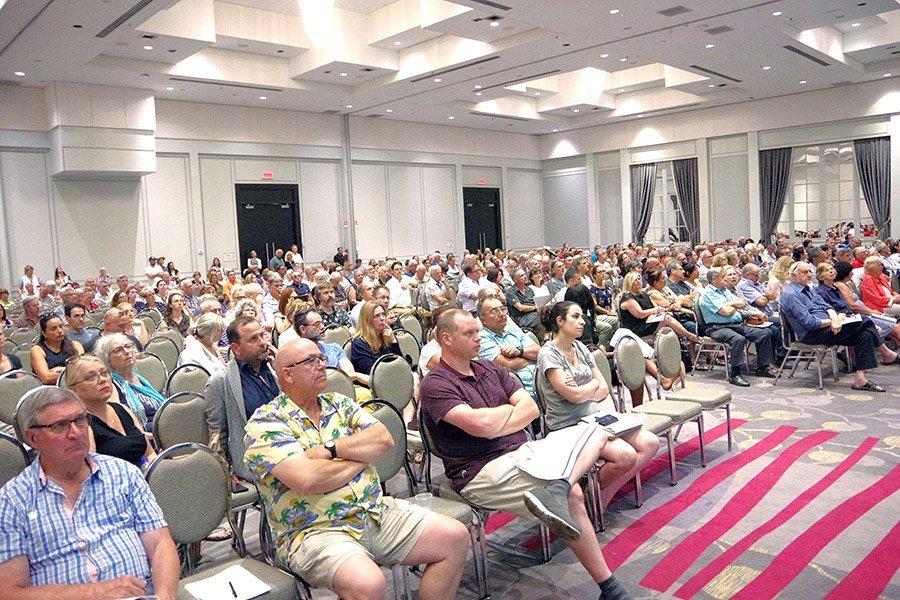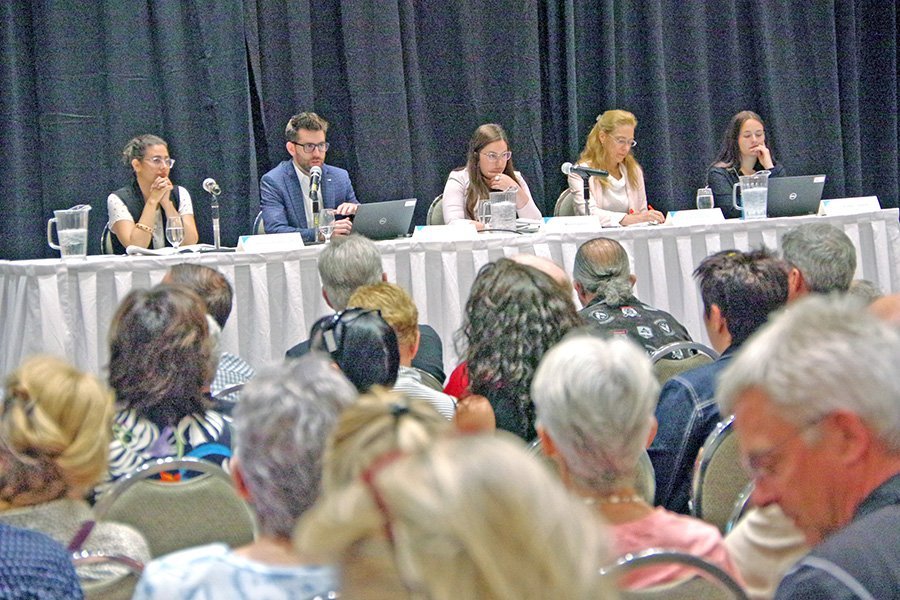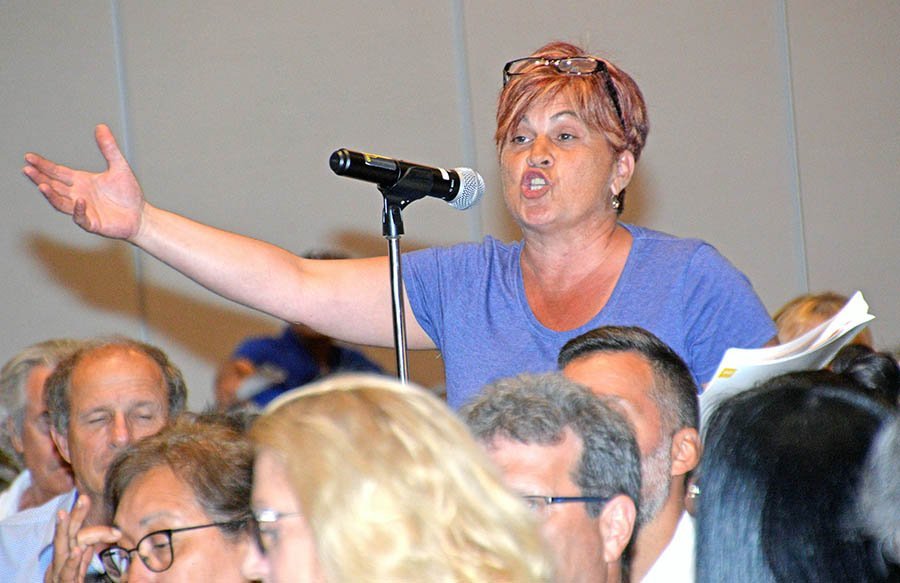
Martin C. Barry
Was it déjà vu? Or, perhaps more ominously, a foreshadowing of something that stands to become a lot more common in Laval in this era of global warming?
Whatever, there was an eerie sense of having seen it all before last week when officials from the Quebec government were in Laval for a public information meeting with property owners who were seriously impacted by the flooding in April.
Panel answered questions
After all, the last time this happened was in 2017 and the drill then was pretty much the same: a panel of bureaucrats facing hundreds of sometimes irate Laval residents (albeit fewer than last time) at the Château Royal.
The residents were addressed in a way they had more or less come to expect of governmental consultants and employees: responses couched in departmental codes, ciphers and technospeak, with bureaucrats replying as best they could to traumatized people who probably would have much preferred hearing plain language.
Towns and cities affected
According to a summary of the government’s post-flood plans for establishing new flood zones, 813 of the province’s municipalities are affected as new zones are set up for zero to 20-year risks as well as all sectors which suffered flooding this past year and two years ago.
For properties within these zones, there will be no possibility of constructing or reconstructing a building that has lost more than half its value, and there will be no expansion of buildings or outbuildings in such zones. Getting permission to rebuild flood-damaged properties will depend on whether the cost of reconstruction amounts to 50 per cent or more of the value of the house.
Municipalities, including the City of Laval, will be issuing renovation and construction permits within these zones based on criteria set down in new provincial legislation that was drafted taking into account the impact of past and potential future flooding.

Venting their anger
During a question period, several Laval residents from areas seriously affected by flooding this spring (including Laval-sur-le-Lac, Île Verte, Laval-Ouest, Fabreville and Sainte-Rose) expressed their disillusionment – or in some cases outrage – over the way municipal and provincial authorities have dealt with the aftermath.
Unhappy with a proposed new flood zone map the provincial government has developed, Eli Chakieh of Laval-sur-le-Lac said the chart is designed to cover the entire area. “This is inaccurate,” he said. “None of the houses in Laval-sur-le-Lac were flooded. I’ve been there for forty years and I lived through two floods before.
“You are mixing up houses with land,” he continued. “The land had flooded on the riverside. The houses never flooded. And you’re amalgamating all the problems for the houses and the land and you’re preventing the citizens of Laval-sur-le-Lac from doing improvements.”
Improvements forbidden
Chakieh said that according to the new flood-zone law, he’s being prevented from installing a new pool in his back yard because it falls under a definition of prohibited construction. Marc Mongeon, a spokesman for the Ministry of Municipal Affairs and Habitation who answered most questions during the meeting, told him that the government hasn’t finished the final draft of the legislation and that there will still be time to iron out details involving those sorts of situations.
Another resident, Rose-Lise Arrelle of Chomedey, complained that the government’s proposed new flood-zone map includes her property, even though her street has never been flooded. “We deplore the fact that someone – we don’t know who – coloured the map red in such a way as to cause a lot of people concern,” she said. “This is needless anxiety that you are encouraging. The map does not correspond to our reality.”
Some officials attended
At the same time, Arrelle noted the absence of virtually all provincially-elected representatives at the meeting. (A few members of Laval city council, including Laval-Les Îles councillor Nicholas Borne, Sainte-Rose councillor Virginie Dufour and Auteuil councillor Jocelyne Frédéric-Gauthier, did attend the meeting as observers and interveners.)

Guylaine Riendeau of Fabreville complained about a shortage of information and a lack of transparency regarding the official response to the floods. Like many of the other residents, she complained of being subjected to severe flood-zone restrictions in the new chart, even though her property had never suffered flooding.



